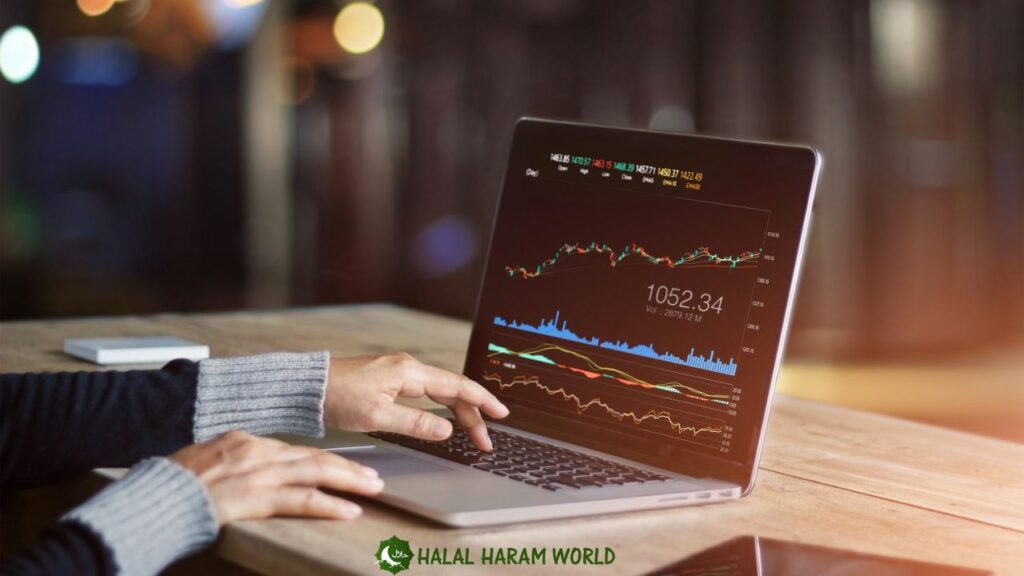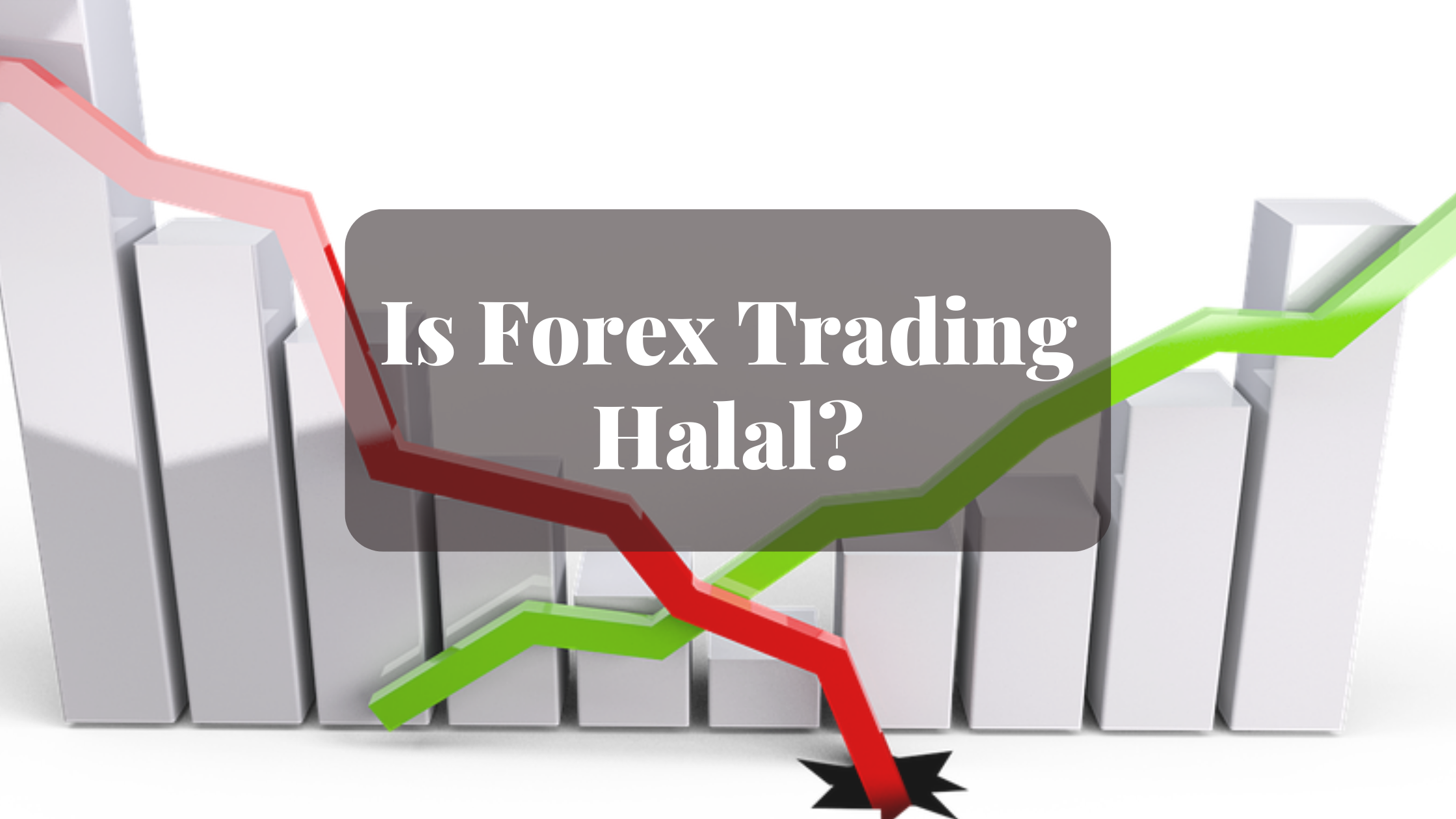Forex trading is permissible in Islam under certain conditions. These conditions prohibit interest-based transactions and speculative trading, which are seen as gambles and usurious. Forex trading must have a specific purpose and not be pursued solely for profit. Excessive risk-taking, including trading on margin, is discouraged, as it also involves gambling.
Is forex trading halal? The foreign exchange market, or forex, is a global marketplace where people buy and sell currencies. It’s the largest financial market in the world, with a daily turnover of more than $5 trillion. But is it halal for a Muslim to take part in Forex Trading? Make sure you read till the end to find out.
What is Halal?
There are a number of different things that can be considered halal behaviour. In general, halal behaviour is any action or conduct that is in line with the teachings of Islam. This can include things like praying regularly, abstaining from alcohol and other drugs, and being honest and truthful in all interactions.
It is important to remember that not all Muslims will have the same definition of halal behaviour. For some, it may simply be following the basic tenets of Islam. For others, it may be more strict and encompass a wider range of activities. Ultimately, it is up to each individual to decide what they consider to be halal behaviour, apart from some basic rules which are universal.
What is Forex Trading?

Forex Trading, also known as foreign exchange trading, is the act of buying and selling currencies in order to make a profit. Forex is one of the largest and most liquid financial markets in the world, with an average daily trading volume of over $5.3 trillion.
Advantages of Forex Trading
- High Liquidity: Forex markets are incredibly liquid, which means it is easy to buy and sell currencies, even in large quantities.
- 24/7 Market: The forex market operates 24 hours a day, five days a week, which means traders can access the market at any time, from anywhere in the world.
- Leverage: Forex traders can use leverage to increase their buying power, which can result in higher profits.
- Low Costs: Forex trading typically has lower costs compared to other financial markets, such as stocks or commodities.
- Accessibility: With the advancement of technology, forex trading is now accessible to individual traders, thanks to the development of online trading platforms.
Disadvantages of Forex Trading
- High Risk: Forex trading is a high-risk investment and can result in substantial losses, especially for inexperienced traders.
- Volatility: Forex markets can be highly volatile, which means prices can change rapidly, making it challenging for traders to make informed decisions.
- Dependence on Economic and Political Factors: Forex prices are heavily influenced by economic and political factors, such as interest rates, inflation, and geopolitical events.
- Requires Skill and Knowledge: Forex trading requires a good understanding of technical and fundamental analysis, as well as a solid grasp of risk management.
- Emotional Challenges: Forex trading can be stressful, and the high-pressure environment can lead to emotional decisions, which can result in significant losses.
Is Forex Trading Halal or Haram?
Forex trading is one of the most popular forms of investment, and for good reason. It offers the potential for high returns, while also carrying a certain amount of risk. But what about the religious implications of forex trading? Is it halal or haram?
The answer to this question isn’t entirely straightforward, as there is some debate on the matter. However, many Islamic scholars believe that forex trading is halal if it is done in a way that is compliant with Shariah law. This means avoiding speculation and risky transactions, and instead sticking to more stable and conservative investments.
Of course, this is just one interpretation of the matter. Ultimately, it is up to each individual Muslim to make their own decision about whether or not forex trading is halal or haram.
Source Reference – The above information is verified via Trader’s Union.
FAQ
What is the basis for the debate among Islamic scholars regarding Forex Trading?
The debate stems from the fact that Forex Trading involves elements of uncertainty, speculation and leverage, which are considered haram (forbidden) in Islamic finance.
Are there any conditions under which Forex Trading would be considered Halal?
Some Islamic scholars believe that Forex Trading can be considered Halal if it is conducted on a spot basis (i.e. delivery of currency takes place immediately), the transaction is free of riba (interest) and the trader has a clear understanding of the risks involved.
How can Forex traders ensure that their activities are in compliance with Islamic law?
Forex traders can ensure compliance with Islamic law by using Islamic Forex accounts, which are designed to be free of riba and based on the principles of share and trade. These accounts offer Forex trading on a spot basis and have no hidden charges or fees.
Conclusion
There is much debate surrounding the question of whether forex trading is halal or haram. While there are those who argue that forex trading is permissible according to Islam, there are also those who believe that it is not. Ultimately, the decision of whether or not to trade forex must be made by each individual Muslim based on his or her own level of religious understanding and knowledge. However, it is important to note that there are certain risks involved in forex trading, and these should be taken into consideration before making any decisions. Thanks for reading!
Also explore Is Day Trading Haram, Is Apple Stock Halal, Is Amazon Stock Halal, Is Tesla Stock Halal, Is Investment Banking Haram, Why Is Interest Haram and many more.






